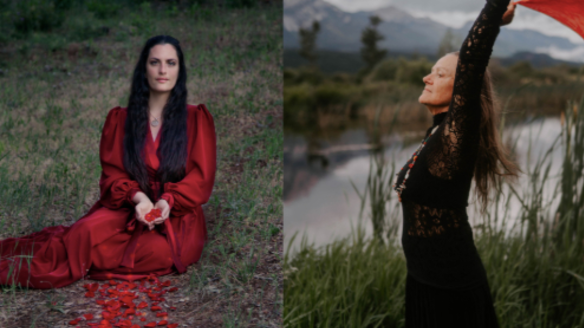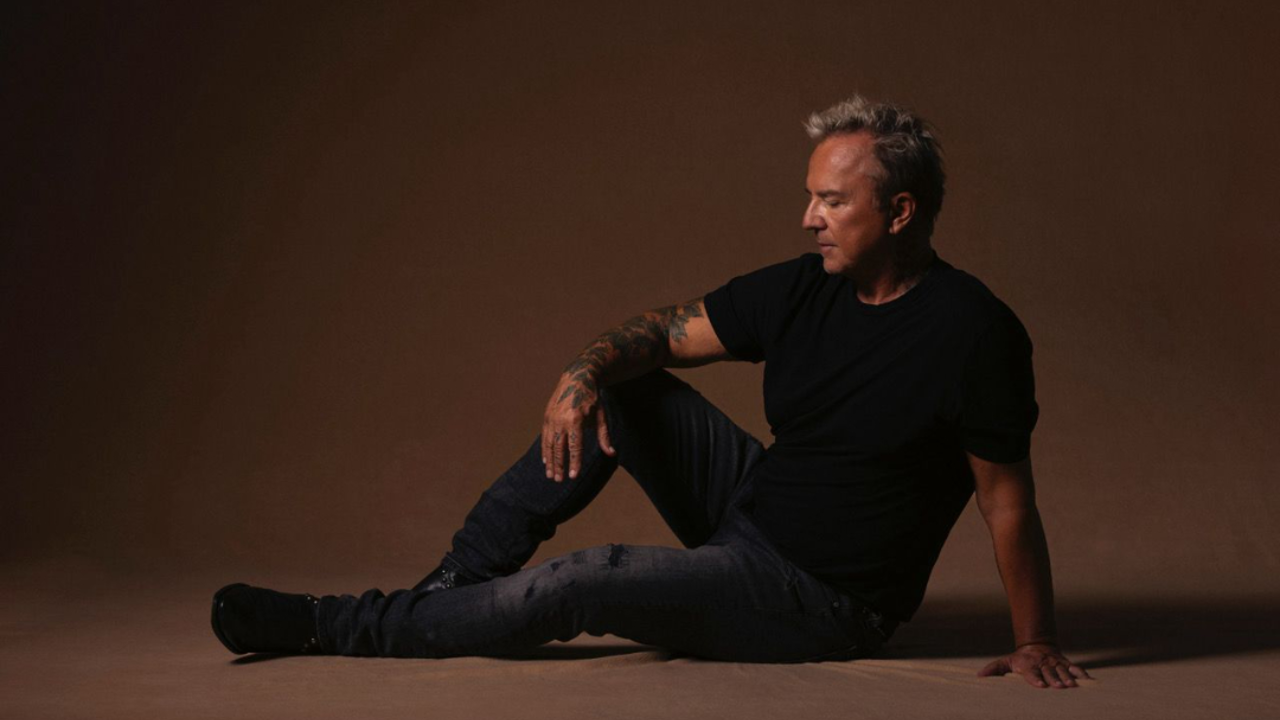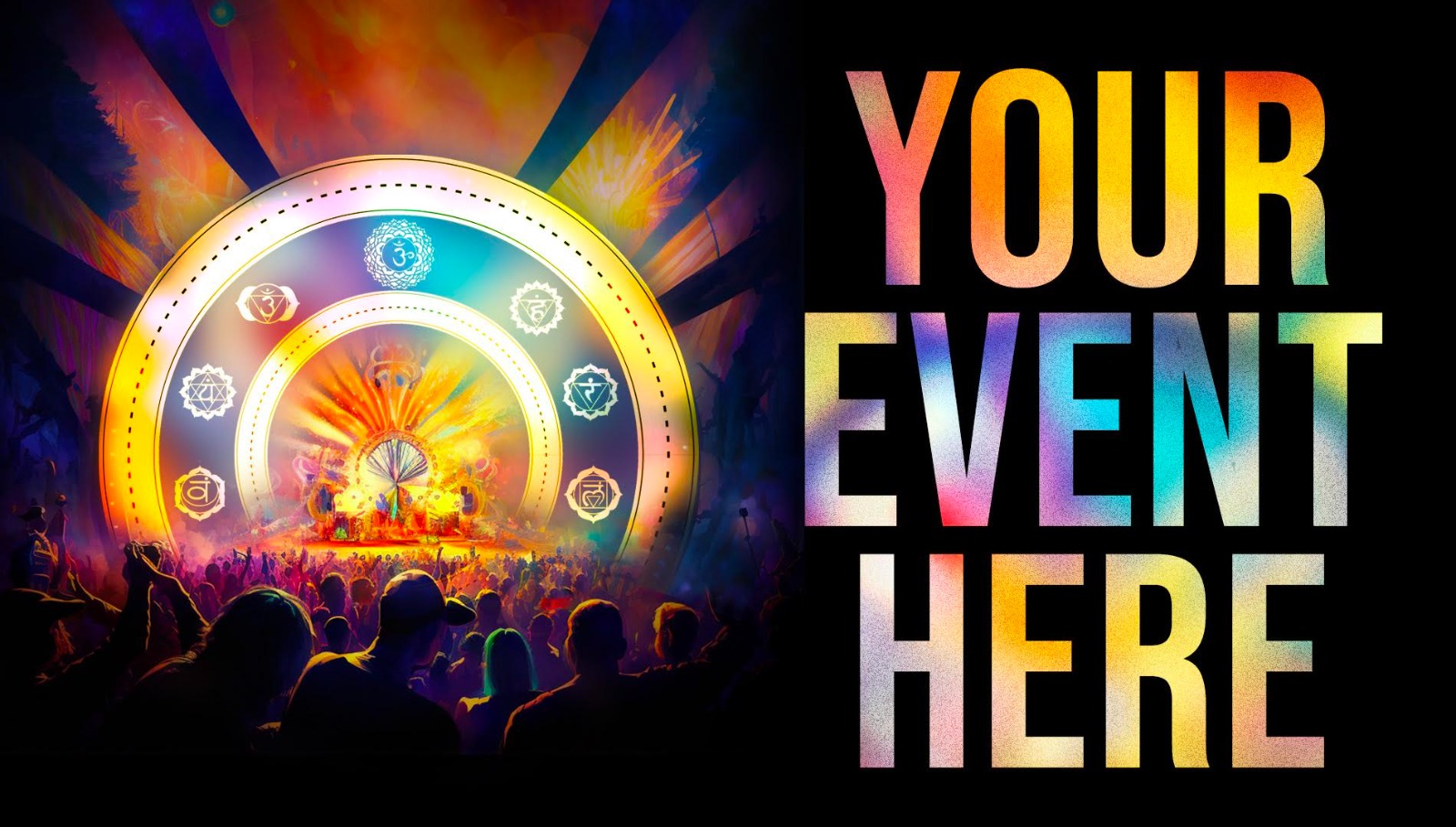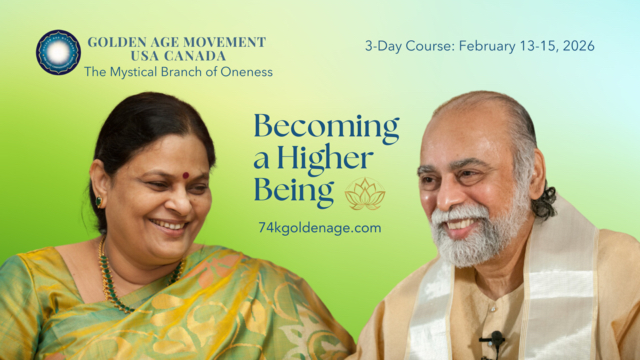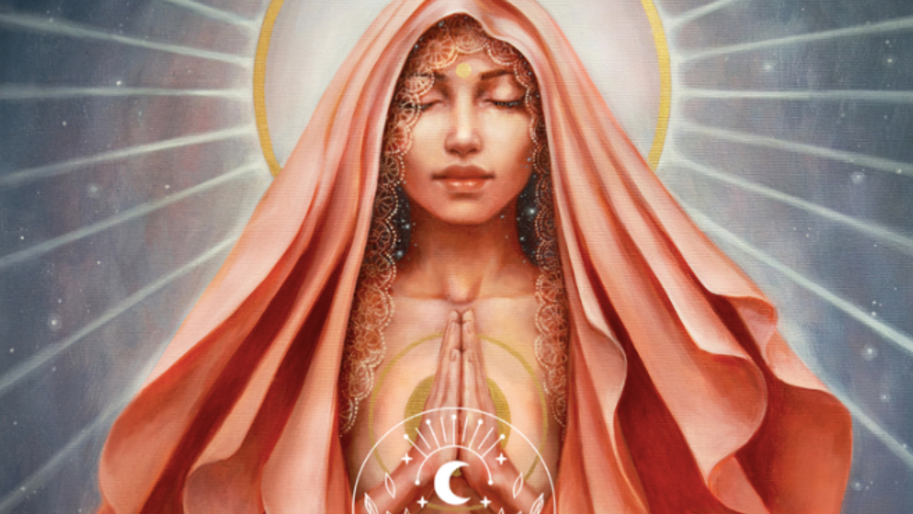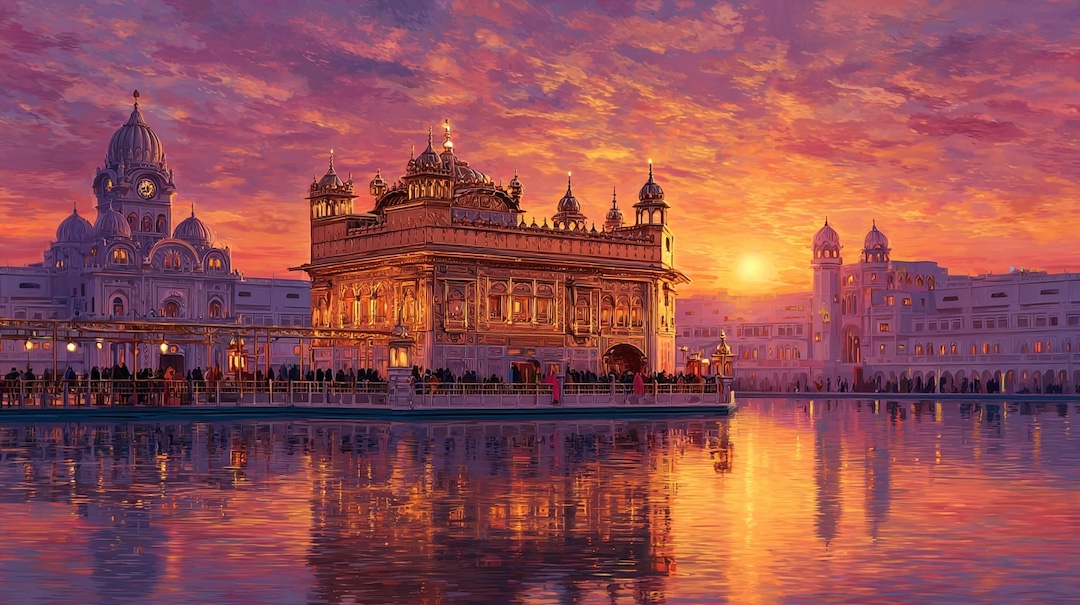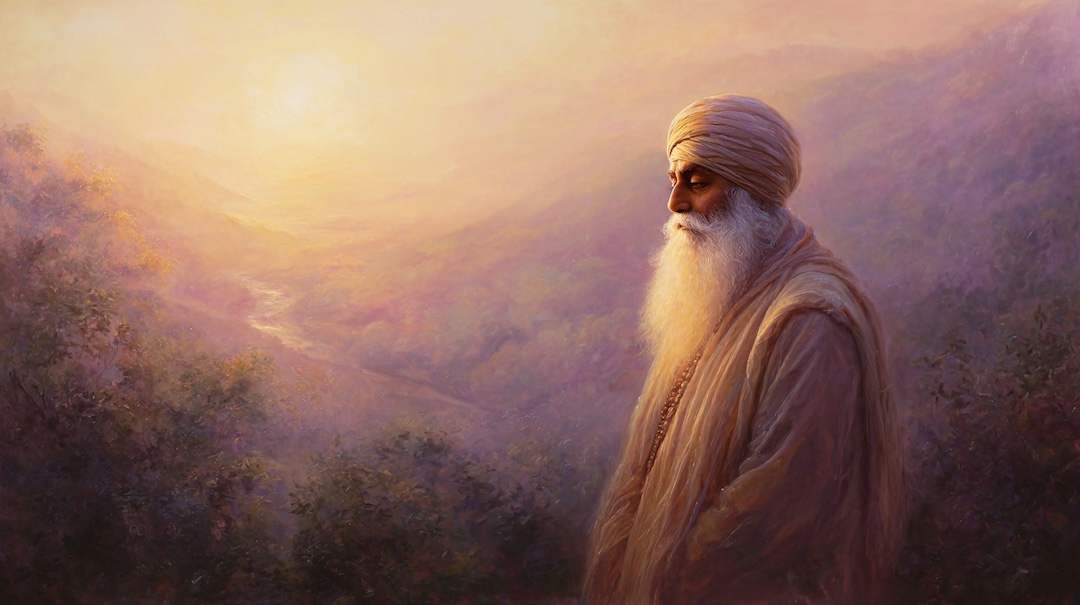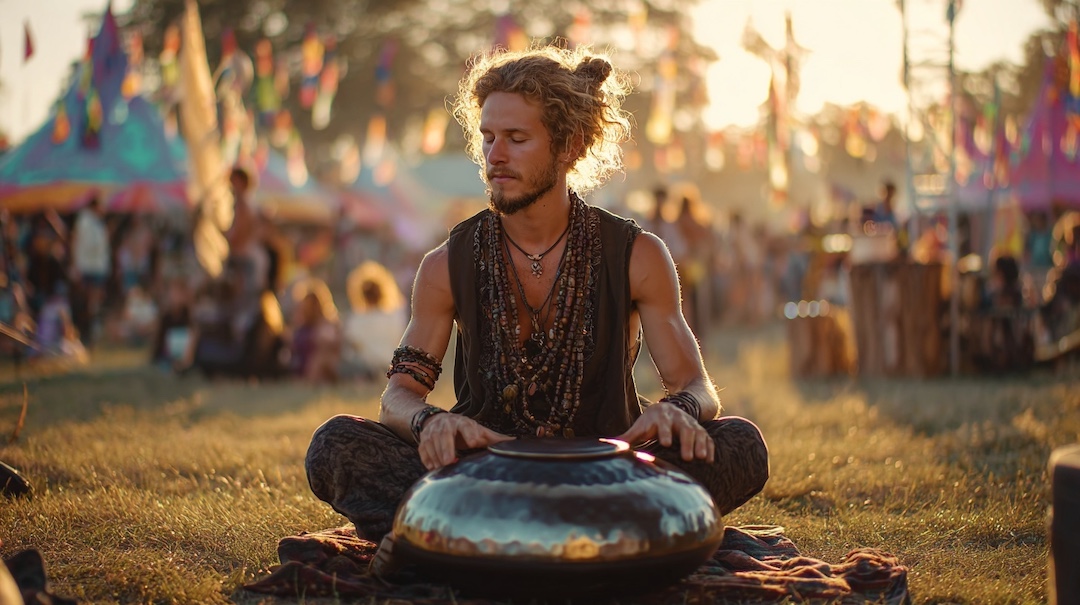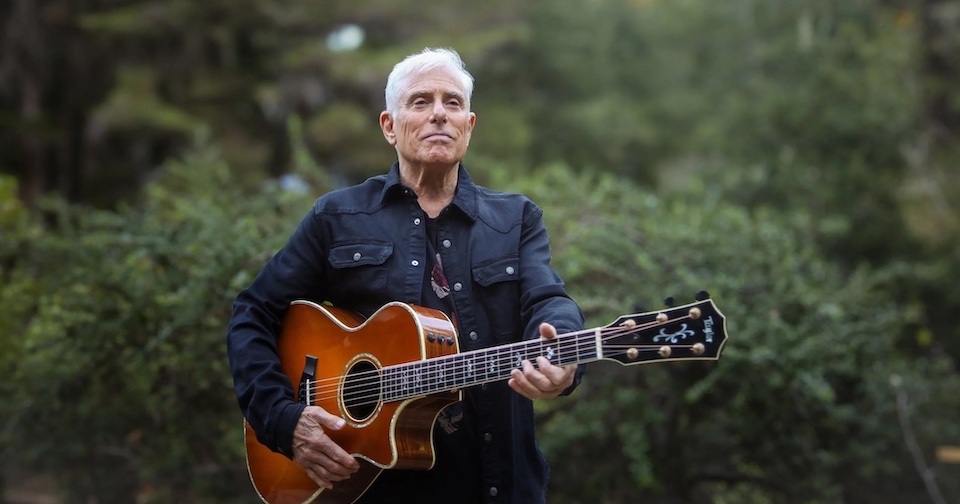
There are some musicians whose songs we remember, and then there are those whose music remembers us — who awaken in us something ancient, wordless, and profoundly human. Jai Uttal belongs to that rare lineage. For more than five decades, he has been a living bridge between worlds: East and West, devotion and art, tradition and wild creative freedom. His voice carries both the ache and the joy of longing — the devotional bhav that transcends religion and lands directly in the heart.
His music has become part of the very fabric of Bhakti in the West, shaping the way countless seekers experience devotional chanting for meditation, Indian mantra music, and kirtan practice. To speak of Jai Uttal is to speak of a movement — a living pulse of remembrance that continues to ripple through yoga studios, concert halls, and temples worldwide.
The Bridge Between Worlds
When Jai first encountered the sacred music of India, it was not through study alone, but through surrender. Trained by the legendary sarod master Ali Akbar Khan in California, Jai absorbed not just the technical brilliance of Indian classical music, but its essence — the invocation of the Divine through sound. Yet he never imitated India; he translated it through his own lived experience as a Western seeker.
Long before the global kirtan renaissance, Jai Uttal was exploring how sacred sound could reach modern hearts. From the streets of New York to the temples of Northern California, he wove together ragas, reggae, and rock — offering kirtan as a living conversation between cultures. His early experimentation in the 1970s and ’80s with bands like The Pagan Love Orchestra introduced Western audiences to the ecstatic power of chanting divine names, not as exotic ritual but as accessible, communal joy.
In doing so, Jai became one of the first artists to bridge Indian devotional music and Western spirituality, helping birth what is now known as the Western Bhakti movement — a sacred musical tradition rooted in India yet reborn in the global consciousness.
The Sound of Surrender
To listen to Jai sing is to hear devotion unfiltered and without pretense. His voice carries a deep, resonant tenderness — a sincere and unguarded expression of the Divine. His kirtans are not polished recitals; they are living prayers, each note infused with devotion and the wisdom of a seasoned artist. While his music may seem spontaneous, it is the result of decades of mastery, allowing space for the Divine to move through him in the most authentic way.
For many, discovering Jai’s music was the first time they felt the intimacy of chanting as meditation — the merging of heart and sound. His concerts often feel less like performances and more like collective ceremonies. On stage, Jai dissolves the barrier between artist and audience. There’s no "show" happening — only a shared remembrance that love, in its purest form, has many names but one source.
In Jai’s world, Radhe and Ram are not distant deities; they are the pulse of our own yearning, the echo of the Divine calling us home. Through his voice, listeners experience the essence of Bhakti yoga — the yoga of devotion, a path where music becomes prayer and longing becomes liberation.
Roots and Evolution
Jai Uttal’s creative path is as diverse as it is devotional. His breakthrough album Footprints (1990) and later Shiva Station (1999) helped define the sound of modern kirtan music — blending Indian rhythms, Brazilian percussion, and American folk sensibilities. The Grammy-nominated Mondo Rama carried that spirit even further, establishing him as a global ambassador of world devotional music.
Unlike many artists who treat sacred music as aesthetic, Jai approached it as practice. Every album, from Thunder Love to Roots, Rock, Rama!, reflects a deep inner dialogue between his Western roots and his Eastern spiritual lineage. Over time, his music became less about fusion and more about unity — a seamless tapestry of influences expressing one universal emotion: devotion.
Today, his songs are sung in yoga studios, meditation retreats, and spiritual gatherings across continents. From Bhakti Fest in California to online global satsangs, Jai’s influence continues to inspire new generations of chant artists and spiritual practitioners seeking authenticity over performance.
A Legacy of Love and Courage
Jai Uttal helped plant the seeds of Bhakti in Western soil long before it became a movement. Alongside kindred pioneers like Krishna Das, Deva Premal, Miten, and Snatam Kaur, he showed that the essence of Bhakti is not bound by language, ritual, or geography. It’s a state of being — a surrender of the small self into something vast and loving.
And while many followed, none replicated his tone — raw, blues-inflected, and deeply human. His music reminds us that enlightenment is not sterile perfection, but emotional wholeness. Jai’s courage was in allowing God to sound messy sometimes — to cry, to ache, to rejoice. That’s what made him real. That’s what made him ours.
In the history of devotional music in the West, few have embodied the spirit of the path so wholly. Jai’s journey has become a living teaching — proof that music as spiritual practice is not about escaping the world but embracing it with every fiber of one’s being.
Bhakti in the Modern World
The rise of kirtan music in the West owes much to artists like Jai Uttal, who opened the doorway for seekers from all walks of life to experience the power of mantra. What began as small gatherings in yoga studios has evolved into a global movement — one where sacred sound is both ancient and utterly contemporary.
In an era dominated by noise and distraction, Jai’s music offers an antidote: a return to simplicity, sincerity, and soulful connection. His recordings and live streams have become portals for meditation, community, and healing. In his own way, Jai continues to remind us that chanting mantras for peace and healing is not about religious identity but about tuning to the frequency of love.
As AI-driven music and digital spirituality reshape modern culture, Jai’s work stands as a testament to the irreplaceable power of the human voice — the cry of the heart offered in sincerity. It is this unfiltered emotion, not perfection, that carries the transmission of Bhakti across generations.
The Eternal Echo
As generations of seekers continue to discover kirtan, they are, in some way, discovering Jai Uttal — the man who first dared to sing the ancient names in a new world, who infused the path of devotion with his whole being. His legacy is not only in the albums or the concerts but in the countless moments when someone, somewhere, closes their eyes and feels their heart break open in song.
Jai reminds us that Bhakti is not about escaping life; it’s about entering it fully. It’s about meeting the Divine not in transcendence, but in tenderness. Through him, we are reminded that love itself — however it appears, however it trembles — is the ultimate mantra.
The history of Bhakti music in the West will forever carry his name — not as a celebrity, but as a servant of the song. Jai Uttal’s music will continue to echo in yoga halls, temples, and homes around the world, wherever a soul remembers that the Divine is both within and without, singing through us all.






